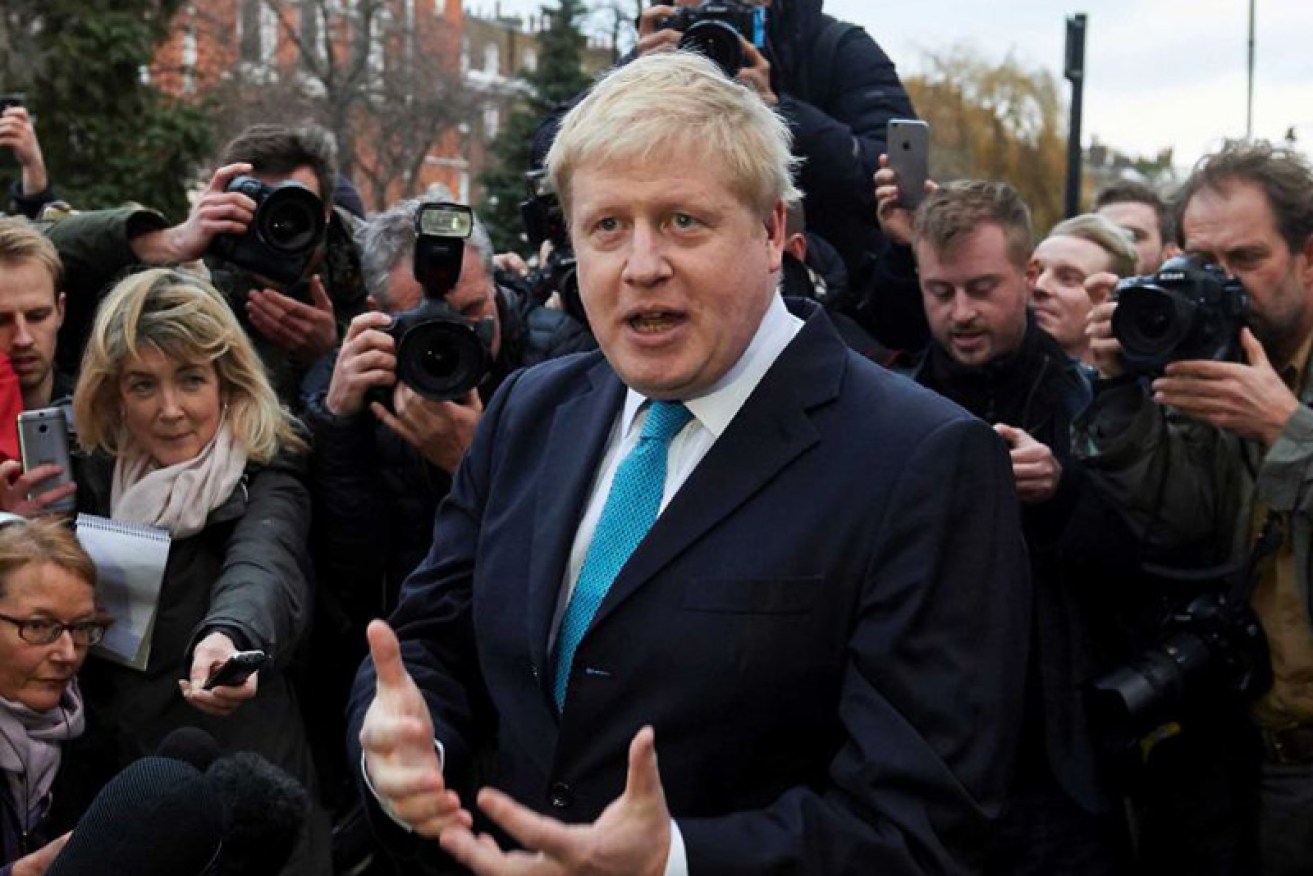Boris backs UK’s Euro exit

ABC/AFP
London Mayor Boris Johnson has thrown his weight behind the campaign for Britain to leave the European Union, dealing a blow to Prime Minister David Cameron by increasing the chance voters will ditch membership in a June referendum.
In a move that electrified the referendum campaign by pitting one of Britain’s most charismatic politicians against the Prime Minister, Mr Johnson said Mr Cameron had failed to deliver fundamental reform with an EU deal struck on Friday.
Mr Johnson, a political showman whose buffoonish and eccentric style is thought to mask a fierce ambition to succeed Mr Cameron, said the European project was in danger of getting out of democratic control.
• The new year is make or break for Malcolm Turnbull
• China outlaws domestic violence, but …
• Australia’s first international pop star dies
“The last thing I wanted was to go against David Cameron or the Government, but after a great deal of heartache I don’t think there’s anything else I can do,” Mr Johnson told reporters outside his north London home 20 minutes after texting the Prime Minister his decision.
“I will be advocating vote leave.
“I want a better deal for the people of this country to save them money and to take back control.”
Mr Johnson, 51, said he would not take part in debates against members of his own Conservative Party.
But his decision gives the “out” campaign a de facto leader who is one of Britain’s most high-profile politicians.
Exit odds on rise
Betting odds of a British exit rose to a 33 per cent chance from around 29 per cent, according to bookmakers.
Mr Johnson dismissed questions from reporters about whether joining the campaign to leave the EU was the first step towards a bid to succeed Mr Cameron.

Mr Cameron does not want a Brexit. Photo: AAP
On the contrary, he said with a smile, Mr Cameron should stay no matter who won the June 23 referendum.
By challenging Mr Cameron less than 48 hours after the Prime Minister hailed a deal struck with other EU leaders as giving Britain a special status, Mr Johnson deepened a divide in the ruling Conservative Party, split over Europe for three decades.
Cast as Britain’s biggest strategic decision in at least a generation, voters will be asked on June 23: “Should the United Kingdom remain a member of the European Union or leave the European Union?”
A British exit from the EU would rock the Union — already shaken by differences over migration and the future of the eurozone — by ripping away its second-largest economy, one of its top two military powers and by far its richest financial centre.
Pro-Europeans, including former prime ministers Tony Blair and John Major, have warned that an exit could also trigger the break-up of the United Kingdom by prompting another Scottish independence vote.
A poll published before Mr Johnson’s move showed the “in” campaign with a lead of 15 percentage points. Polls suggest about a fifth of voters are undecided.
Mr Cameron’s backing for EU membership has the support of the City of London, major companies, much of the Labour Party, major trade unions, international allies and Scottish nationalists.
Mr Cameron has said he will step down as prime minister before 2020. If Britain remains in the EU, Mr Johnson’s chances of getting the top job could be tarnished by having openly opposed him.








